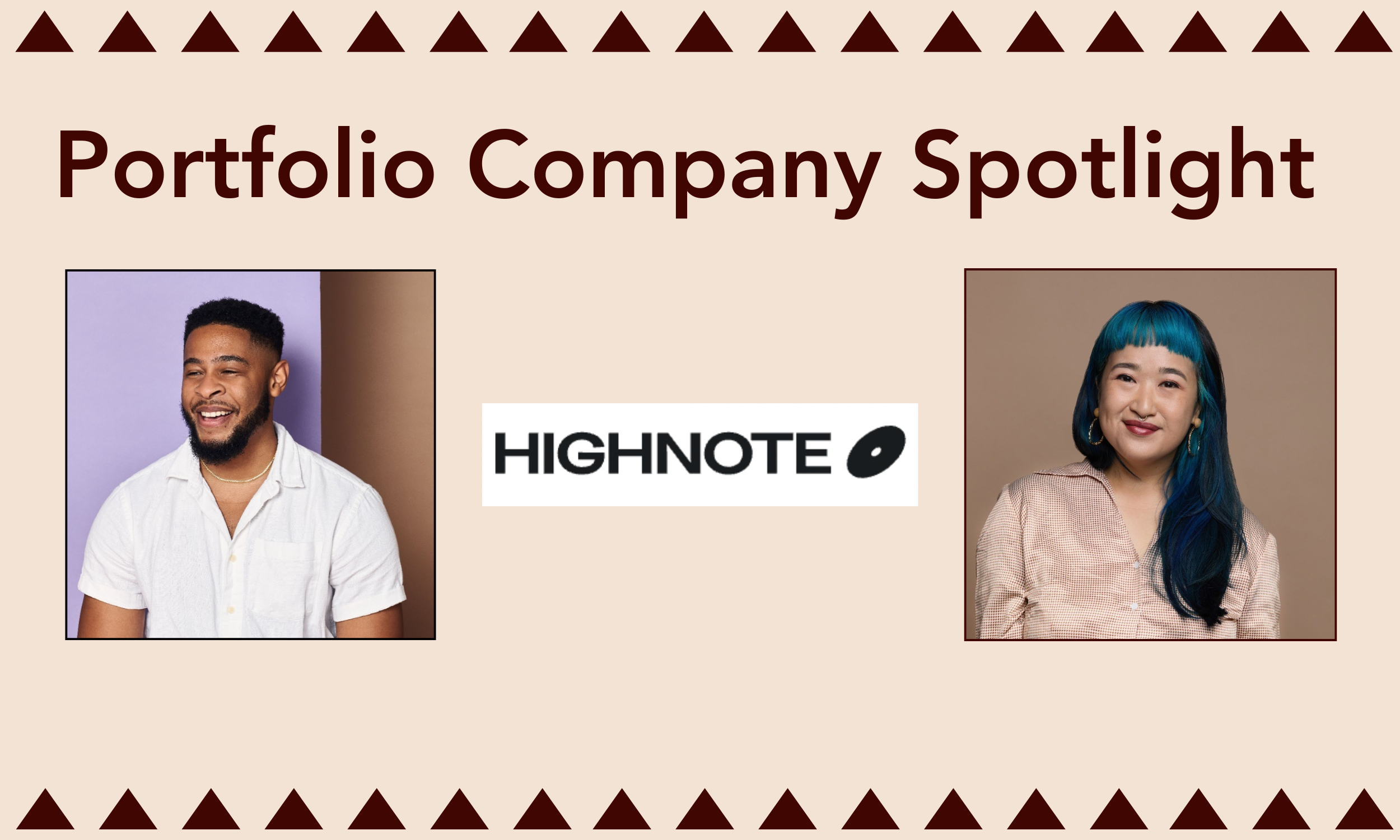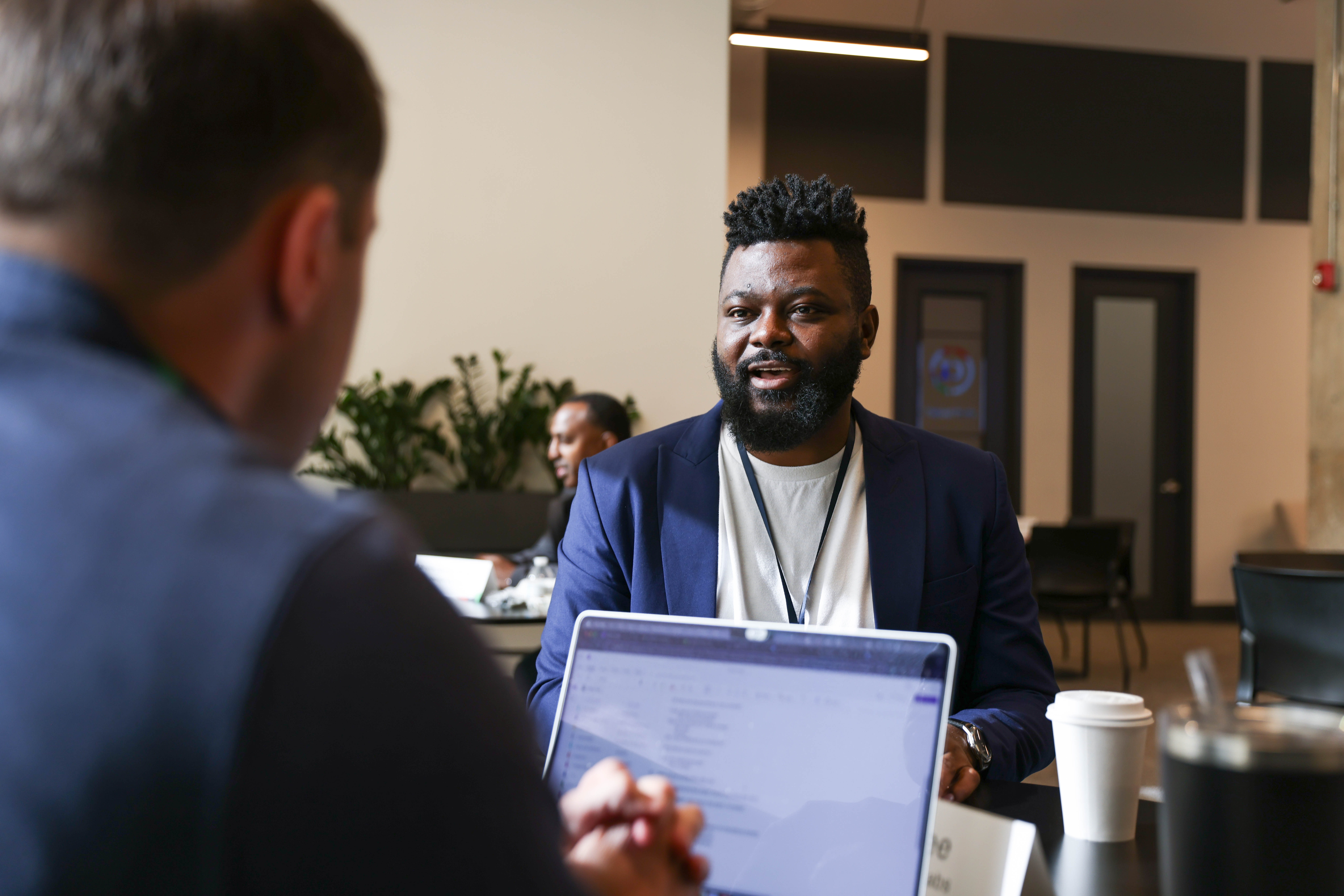This month, we’re highlighting our recent conversation with Jordan Bradley and Paulina Vo, Co-founders of Highnote –A flexible sharing and discussion platform for artists, their teams, and their communities.
What led you to entrepreneurship?
Jordan: I had started Highnote as “Tracknotes” as an after-work project with my roommate, who was in a group with me. In my 9-to-5, I would write code and design apps, and after work, I would write R&B hooks and produce singles. During that process, I wanted an easier way to collect meaningful feedback from editors, which inspired an idea for a more engaging way to comment on music in general. This grew into a wider observation – at work as a software engineer, we were spoiled with collaboration and discussion tools. But as a music creator, there was little such thing.
Paulina: I was a singer and songwriter, and dragging around my guitar to miscellaneous gigs in my beat-up, old car. I ended up working in tech, and my experience is in customer experience and engagement. I worked at Squarespace, where I scaled teams, and I worked in music publishing, where I learned more about the operational and customer user experience. In the music industry, I’ve become immersed in those communities and learned how to create partnerships and work with other musicians.
What was your “Aha” moment that sparked the idea for Highnote?
Jordan: I didn’t know what a VC-backed company was at that time, or that I would have the opportunity to do that with Highnote. I started connecting with other artists who shared the same problems I was trying to solve. As I was workshopping the idea, I attended different community events and met my co-founders, Paulina and Chris. Chris had experience working at Splice and Spotify. Between Paulina’s community engagement expertise, Chris’s customer experience, and my background in building apps, it all came together.
Musicians only represent one part of our user base. One of our biggest learnings is that it’s not just musicians who need our support, but everyone who works with them. When you think about what goes into writing Billboard Hot 100 songs, it’s not just one person, but more like a group of 20 people. The dynamics of music creation and the teams involved in the whole process are very much an ecosystem.
Paulina: It’s helpful when we talk to musicians and their teams because audio and music are very nuanced. A lot of trust needs to be built, and there needs to be a genuine brand behind any tool that they’re going to use. It’s not like DoorDash or any other type of service.
How did you come to connect with Bronze Valley?
Jordan: We heard about Bronze Valley’s accelerator, and although we didn’t participate at the time, we still got in touch, and they became one of our investors. Neill Wright worked to connect us with a larger pool of capital, which was excellent and very instrumental in closing our most recent round of capital.
How have you grown and what’s ahead for the company in 2025 & beyond?
Jordan: Our first round was raised in 2021, and that’s when we realized that we could have a massive venture-backable opportunity to create in music. Since then, we’ve raised about $5 million, iterated a ton, and most recently shipped our iOS and Android apps. With our cross-platform suite complete, we’re now focusing on some exciting campaigns to welcome artists to the product at scale.
We are looking toward Highnote being universal, like fans having Highnote to interact with their favorite artists, and artists having Highnote to interact with their manager, producer, and team. We look forward to expanding our audience, and we’re grateful for our current base of customers, such as composers at The New York Times, who use Highnote to produce music for The Daily and Modern Love.
Paulina: We are constantly discovering the breadth of our audience as we dig deeper and get further validation of the platform. It’s very continuous, the mountain of people who work and share one track, and they all need a space to have conversations.
Founder to founder: What’s your advice to other entrepreneurs?
Jordan: Something I think a lot about as a first-time founder is that it’s important to own your journey and not be afraid, even if you are doing something really scary and difficult. A lot of people have a lot of advice to give, and the hardest thing is to parse the incredible nuance in all the advice you’re going to get.
It’s really a self-discovery process of honing what you’re trying to do, receiving input from others, and really taking the time to process it. Thinking, “What should I take from this person’s perspective?” And, to understand that there is no right answer. One of the things I have learned is that there is no one way to do this and no rules. Being a successful founder is being ruthlessly creative and inventive. Being confident, but not delusional, and really mastering that kind of balance. It’s finesse, and not a deterministic “do this” and you win, or “do this” and you lose.
Thank you, Jordan & Paulina, for sharing your story about Highnote and for the helpful advice for first-time founders! We look forward to your progress in the year ahead.



.png)

